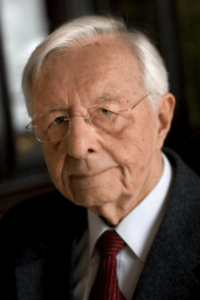The International Centre of Education was established in 1985 on the initiative of Prof. Stanisław Juchnowicz. The idea of creating a centre specializing in educating foreigners was born in Nigeria, where the later founder of the Centre was working in the years 1972-79. The stay in Africa allowed Prof. Juchnowicz to learn more about the urbanization problems in developing countries, especially ecological issues. The unit named the Urban Study Centre for Developing Countries was established at CUT by the Poland Minister of Science and Higher Education on July 31, 1985.
The Centre has launched courses preparing foreign candidates for studies in Architecture and Urban Planning. This profile has expanded over the years. Due to the influx of people intending to study other fields, the unit diversified its teaching programs. The numbers of students from various countries in Europe and the Middle East, Asia and the Americas also gradually increased.
In 2002, the Urban Study Centre for Developing Countries was transformed into the International Centre for Education and Urban Studies, and in 2007 – into the International Centre of Education.
Over many years and through experience, a comprehensive system for admitting international students, nostrification of diplomas, preparatory education and referral to further studies has been developed, including cooperation with diplomatic missions, government offices, agencies, and various universities.
Today’s activities of the Centre include courses preparing for studies and scientific research in Poland in the scientific, technical, economic, and artistic disciplines.
In addition to teaching, the Centre carries out scientific and design projects. Involvement in research in urbanism and sustainable development, initiated by Prof. Stanisław Juchnowicz, has been continued.
Since 2015, the Centre has been offering postgraduate studies in the field of Sustainable Urban Management.
Since 2019, the Centre has also been offering postgraduate studies in CSR Management.

Photo Grzegorz Ziemiański
Prof. Stanisław Juchnowicz (1923-2020)
Stanisław Juchnowicz was an architect and urbanist; professor at the Cracow University of Technology, dean of its Faculty of Architecture (1984–1989), founder (1985) and long-time director of the International Centre of Education.
During his uniquely long career as a designer, scientist and academic teacher, he was, among others, a UN expert on city planning, long-time chairman of the Urbanism and Architecture Commission of the Polish Academy of Sciences, as well as founder, chair (1983-1989) and honorary chair (1989-2020) of the Polish Ecological Club (PEC) – the first independent environmental NGO in the Eastern Bloc. As the leading expert in urban ecology for the democratic opposition in communist Poland, he created the country’s sustainable development philosophy and participated in the Polish Round Table Talks (1989).
He obtained his education, among others, at the Faculty of Architecture of the Lviv Polytechnic University. During the nazi German occupation (1941-1944), he participated in the resistance as a Polish underground Home Army soldier. After the war, he continued his education at the AGH University of Science and Technology in Kraków and the Gdańsk University of Technology. After graduation, he headed the urban planning studio to reconstruct the Main Town in Gdańsk (1949-1950). In the early 1950s, he was a member of the Nowa Huta design team, personally authoring the designs of the B-1, B-2, B-3 and A-11 housing estates (1950-1954).
In 1954, he began research and teaching work at the Department of Urbanism at the Faculty of Architecture of the Cracow University of Technology. Thanks to a scholarship from the Ford Foundation, in 1959 he completed a one-year internship at the University of Pennsylvania. In the 1970s, he founded and headed the Department of Urban and Regional Planning at the Ahmado Bello University in Zaria (Nigeria). He designed plans for several African cities: Zaria, Gaya, Gombi, Bichi, and the concept plan for the new Nigerian capital, Abuja.
For his merits in the development of Krakow, Prof. Stanisław Juchnowicz was awarded the honorary citizenship of the City. As one of the main designers of Nowa Huta, he permanently went down in the history of Krakow. Here is a documentary film with the participation of Prof. Juchnowicz, which describes the phenomenon of this greenest district of Krakow: Nowa Huta: the Labirynt of Memory (English subtitles)